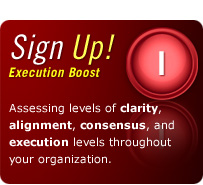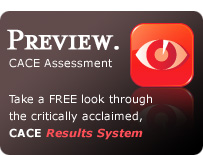April 9th, 2007
by Dr. Brian Higley
Some thoughts on how to access more of your entire organization’s potential
I recently met with an organizational leader and human potential expert, Dr. Margaret “Pat” Korb. At 85 years of age, Dr. Korb is still going strong – consulting, running trainings, and leading her organization, The Gestalt Center of Gainesville. During our meeting, she showed me a pamphlet written in the 1960’s by another expert in human potential, Dr. Carl Rogers.
Read the rest of this article »
April 2nd, 2007
by Dr. Brian Higley
So often, we are encouraged to overlook a critical reality: that people are complex individuals. No one title or “personality type” is sufficient enough to truly describe someone. The more a leader can recognize and work with complexity, the more good ideas tend to emerge from people (many of which you never would have thought of), including more solutions to sometime complex problems.
Stephen Covey stated in The 7 Habits of Highly Effective People that we must be efficient with projects, but effective with people. That is, the most “efficient” ways to do things with others (for example, a quick email to someone telling them what to do) are often not the most effective ways to get things done with others (it may take a longer phone call to truly and consistently get the results you are looking for from someone). Recognizing and appreciating your own complexity and the complexity of others is a huge step toward achieving effectiveness with others. Its been our experience that the more we appreciate (or, in Carl Rogers’ terms, the more we “receive” others in their totality) the more loyalty you get back (along with what my colleague Brian Mistler calls “discretionary effort” from individuals).
Click here to read more about Fully Functioning Organizations
April 2nd, 2007
by Dr. Brian Higley
Instead of thinking of themselves or their businesses as static, the more Fully Functioning leader sees him or herself (and their organization or team) as consistently changing. Being “Built for Change” is something my collegue John Spence identifies as one of the major characteristics of a successful organization. A collection of individuals built this way makes for a flexible and effective organization.
Coach Mike Krzyzewski (“Sha-chef-ski”)of the consistently successful Duke Blue Devil college basketball program recently said that static goals (“win 25 games” or even “make 10 million dollars this year”) often turn into limitations for a team. To avoid limiting an organization, goals must come from a consistently changing process/environment. Of course, the fear of failure often decreases our openness to new experiences. John Maxwell, in his outstanding book Failing Forward talks about how to overcome this block to an organization that is open to experience.
Click here to read more about Fully Functioning Organizations
April 2nd, 2007
by Dr. Brian Higley
Trying to please others (instead of focusing on doing things as well as we possibly can) is so often a major reason why people don’t perform up to their capabilities. My experience leads me to believe that this is due to the increased pressure that comes with this unnecessary worry (“they won’t like me if I excel”, “I shouldn’t talk about my idea – others will think it is stupid”). Encouraging others to give up “oughts” and “shoulds” for “want to’s” and “like to’s” typically leads to more intrinsic motivation, enjoyment, commitment – and less need to be micro-managed.
As Jack Welch and Jim Collins note in their works, more idea surface when a team is less concerned with pleasing others and more concerned with putting their best ideas “out there” for the team to discuss and debate. Often, people report that they do not voice their ideas out of fear of being ridiculed or not appreciated – those who are less concerned with pleasing others will be more confident in bringing more ideas to the table. Is there an unspoken idea in the head of one of your people right now that could change the course of your organization?
Click here to read more about Fully Functioning Organizations
April 2nd, 2007
by Dr. Brian Higley
At first, this may seem like a strange idea to business leaders. I can hear some of you saying, “How can I NOT try to motivate others toward MY expectations? Isnt’ that what leadership and management is about?” The answer comes to us in books like Good to Great, The Seven Day Weekend, and The 8th Habit: if you plug the right people into the right goals, they will very often exceed your expectations, and not need as much (if any) management. This results in more time for managers to strategize and facilitate the execution of these strategies, rather than constantly putting out fires related to poorly motivated employees.
Read the rest of this article »



